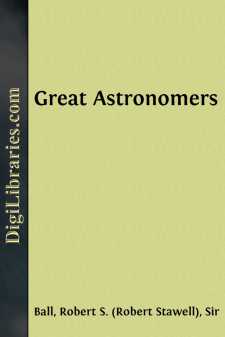Categories
- Antiques & Collectibles 13
- Architecture 36
- Art 48
- Bibles 22
- Biography & Autobiography 813
- Body, Mind & Spirit 138
- Business & Economics 28
- Children's Books 12
- Children's Fiction 9
- Computers 4
- Cooking 94
- Crafts & Hobbies 4
- Drama 346
- Education 46
- Family & Relationships 57
- Fiction 11821
- Games 19
- Gardening 17
- Health & Fitness 34
- History 1377
- House & Home 1
- Humor 147
- Juvenile Fiction 1873
- Juvenile Nonfiction 202
- Language Arts & Disciplines 88
- Law 16
- Literary Collections 686
- Literary Criticism 179
- Mathematics 13
- Medical 41
- Music 40
- Nature 179
- Non-Classifiable 1768
- Performing Arts 7
- Periodicals 1453
- Philosophy 64
- Photography 2
- Poetry 896
- Political Science 203
- Psychology 42
- Reference 154
- Religion 505
- Science 126
- Self-Help 81
- Social Science 81
- Sports & Recreation 34
- Study Aids 3
- Technology & Engineering 59
- Transportation 23
- Travel 463
- True Crime 29
Time and Tide A Romance of the Moon
Description:
Excerpt
LECTURE I.
It is my privilege to address you this afternoon on a subject in which science and poetry are blended in a happy conjunction. If there be a peculiar fascination about the earlier chapters of any branch of history, how great must be the interest which attaches to that most primeval of all terrestrial histories which relates to the actual beginnings of this globe on which we stand.
In our efforts to grope into the dim recesses of this awful past, we want the aid of some steadfast light which shall illumine the dark places without the treachery of the will-o'-the-wisp. In the absence of that steadfast light, vague conjectures as to the beginning of things could never be entitled to any more respect than was due to mere matters of speculation.
Of late, however, the required light has been to some considerable extent forthcoming, and the attempt has been made, with no little success, to elucidate a most interesting and wonderful chapter of an exceedingly remote history. To chronicle this history is the object of the present lectures before this Institution.
First, let us be fully aware of the extraordinary remoteness of that period of which our history treats. To attempt to define that period chronologically would be utterly futile. When we have stated that it is more ancient than almost any other period which we can discuss, we have expressed all that we are really entitled to say. Yet this conveys not a little. It directs us to look back through all the ages of modern human history, through the great days of ancient Greece and Rome, back through the times when Egypt and Assyria were names of renown, through the days when Nineveh and Babylon were mighty and populous cities in the zenith of their glory. Back earlier still to those more ancient nations of which we know hardly anything, and still earlier to the prehistoric man, of whom we know less; back, finally, to the days when man first trod on this planet, untold ages ago. Here is indeed a portentous retrospect from most points of view, but it is only the commencement of that which our subject suggests.
For man is but the final product of the long anterior ages during which the development of life seems to have undergone an exceedingly gradual elevation. Our retrospect now takes its way along the vistas opened up by the geologists. We look through the protracted tertiary ages, when mighty animals, now generally extinct, roamed over the continents. Back still earlier through those wondrous secondary periods, where swamps or oceans often covered what is now dry land, and where mighty reptiles of uncouth forms stalked and crawled and swam through the old world and the new. Back still earlier through those vitally significant ages when the sunbeams were being garnered and laid aside for man's use in the great forests, which were afterwards preserved by being transformed into seams of coal. Back still earlier through endless thousands of years, when lustrous fishes abounded in the oceans; back again to those periods characterized by the lower types of life; and still earlier to that incredibly remote epoch when life itself began to dawn on our awakening globe. Even here the epoch of our present history can hardly be said to have been reached. We have to look through a long succession of ages still antecedent. The geologist, who has hitherto guided our view, cannot render us much further assistance; but the physicist is at hand—he teaches us that the warm globe on which life is beginning has passed in its previous stages through every phase of warmth, of fervour, of glowing heat, of incandescence, and of actual fusion; and thus at last our retrospect reaches to that particular period of our earth's past history which is specially illustrated by the modern doctrine of Time and Tide....














